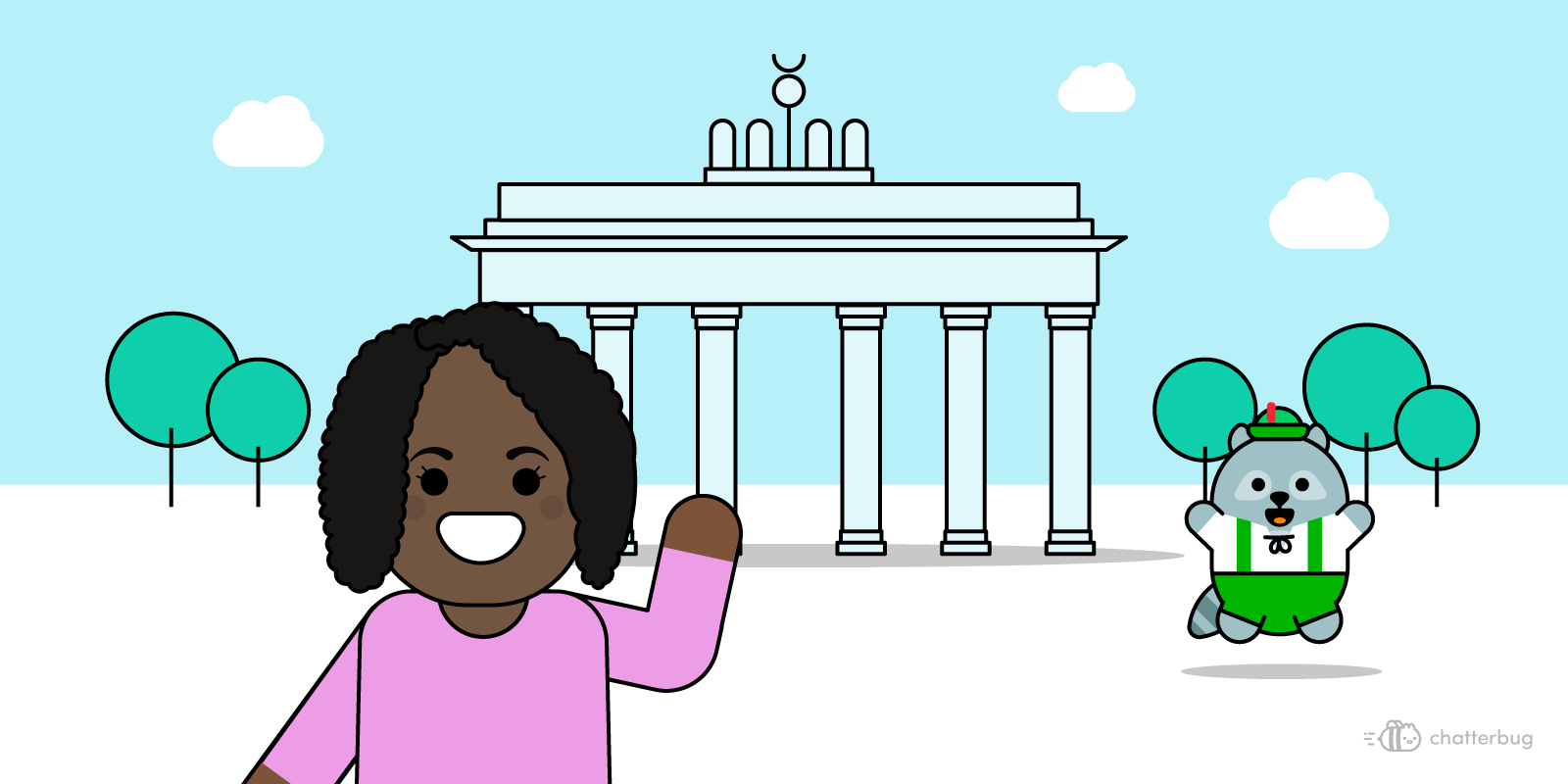Language Learning Tips from a Two-Year Old
It is said that from the day we are born we become life-long language learners. Linguists and medical experts assert that children can actually perceive language in the womb, and once they are born their lives become shaped by the languages around them.
Following the logic above, I have been a language learner for 33 years and I have been the mother of a language learner for only two of those years. I’m from the US so my native language is English; but, my son is a German-born American citizen, meaning his passport says US, but his birth certificate and residency says Deutschland.
As the mother of a two year old, I get schooled every day. I receive lessons in patience, delayed gratification and tenacity. But the most interesting lessons and observations I’ve made as a result of the little human I’ve been tasked with raising, is language.
It’s no surprise that an English Curriculum Developer would be obsessed with language, I mean that’s literally my job. But I also get to watch, first hand, how language is acquired from the very beginning. It has been particularly interesting witnessing him learn two languages while I’m trying to learn one.

I love the logic and directness of the German language, but I have found learning to speak it, fluently, seems like an uphill battle that I might not ever complete. But even so, I live in Germany so I have to give it a good shot which is why I take little lessons in language learning anyway I can get them. Hence another reason why it’s so fascinating to watch my baby boy learn both English and German from the ground up.
Here are five things I’ve learned from my two year old about language learning:
Don’t concern yourself with getting it right!
This one is pretty obvious, but is also a hard one for me. I am one of the most expressive (and extroverted) English speakers I know (if I do say so myself 😉). I love talking and impressing people with my flair for dramatic language and witty repartee.
Sounding like a dumb-struck toddler is not how I want to talk to people in a target language!
This fear is sometimes debilitating when it comes to language learning and usually results in me not speaking to people at all. But as I’ve been watching my son, I see how little regard he has for getting things right. He just says it like he can. Now, I don’t mean I should intentionally speak bad German but it does mean that one should try to speak, even if they’re not sure they can do it perfectly. What’s more, I’ve found that speakers of other languages are simply happy that you are engaging with them in their native language and not forcing them to always speak English. They are usually patient and, if prompted, can help you say the thing you need to say.
Find what you’re interested and talk about that
Kids usually have a razor sharp focus on whatever their given interest is at that moment. For my son it’s vehicles. He loves cars, trucks, boats, planes, and trains in all different sizes, shapes, and colors. He’s much more willing to learn the various words for these objects, and how to describe them, because he’s interested in them. Sure, he can ask for juice and sleep as these are words related to his day to day life, but he really lights up when we talk about cars.
Similarly, I’m always really impressed when I meet people and they tell me they learned to get really good at a language by watching movies. It makes sense. If you combine the thing you want to do with the thing you love to do, you’ll get better results.

Find yourself a language “parent”
No one tells you how much your child will stare at you. I was a bit caught off guard once when I was singing our nightly “twinkle twinkle little star” to my son and noticed that he was staring, rather intently, at me while I was singing. I paused while singing and was elated when he finished the line of the song, quietly. I shouted, “that’s right, Wilder!” and he was quite proud of himself.
I often find him attempting to mimic the words I’m saying and even the tone and inflection of my voice when he can’t quite nail the pronunciation. Similarly, it is often suggested that you find your own language “parent” when learning a new language. Someone who will be patient, knows when and how to correct you, and gives you plenty of praise and support. Most people find this person in a tutor or a friend, but it is crucial to any language learning experience.

Repetition is key to retain new words
This is another one that’s probably often taken as a given, but is essential. When I introduce a word to my son, I usually try to repeat it over and over again in various contexts. For example, I’ve been teaching him about numbers so I count every chance I get. I count to let him know when to begin a game of toss the ball, I count when he goes down the stairs in our apartment building, I count when I want him to do what I say, and I count when it’s time to jump on the bed together. After all that repetition, I was thrilled when I heard him counting one day during his independent play time.
He said it quietly to himself: “wann, choo, tree”.
He didn’t nail the pronunciation, but you get the picture! Same thing goes for language learning. According to linguists, you need to see a word 10-15 times to fully acquire it, and you have to actually use it to add it to your active lexicon.

Practice makes perfect.
The ultimate lesson that I’ve learned from my son is that perfection shouldn’t be the goal—speaking should be. My son doesn’t concern himself with whether he’s speaking correctly or not. He knows he needs to communicate, so he does. I correct him, gently, and he tries again, succeeding at times and repeating the same mistake other times.
This lesson has been so important for me to learn German because my fear of making mistakes often paralyzes me and inhibits my speech altogether. Some days I nail the pronunciation and grammar of what I want to communicate and other times I fail, embarrassingly. But I try to commit myself to trying again and continuing to practice.
Most of the language experience I’ve had with my son has been strictly in English, but I recently discussed this topic with his daycare teacher (in German!), and she noticed the same patterns with his German. So perhaps I’ll give speaking to my son in German a try. Maybe he can even be my German language parent. Truth is, my son will most likely be my lifelong language teacher.
Want to learn more?
If you’re feeling inspired, sign up below for a free two-week trial and a Live Lesson with a private qualified tutor to start speaking a new language for real! Our classes are structured around exercises created by language teachers, so there’ll be no awkward silences – we promise! 😉
And don’t forget to check out our Facebook, Twitter and Instagram pages for more language content!



